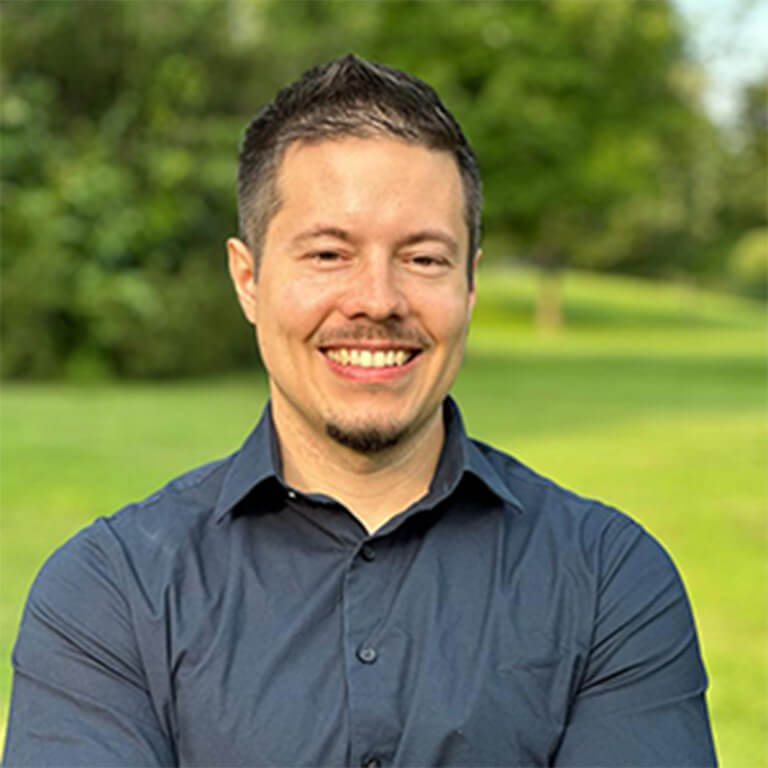- Phone:
- (812) 856-1230
- Email:
- jkreidl@iu.edu

Biography
Julian works on various diachronic and synchronic aspects of ancient and modern Indo-Iranian and Turkic languages, ranging from etymology and historical morphology to more theoretical questions regarding grammatical alignment (especially ergativity). His dissertation is A Historical Grammar of Pashto, and he is now completing his Bactrian Dictionary. Currently, he is also doing work with native speakers of Nuristani languages, mostly from the Waigal, Wama and Nurgram districts, to collect data for a historical grammar of Nuristani. For CeLCAR, Julian has been working on Pashto, Chuvash and Uyghur grammars and textbooks.
Apart from linguistics, Julian is interested in pre-Islamic, especially Indo-Iranian, religions of Central Asia and the Hindukush area as well as the early Islamic period, and the contemporary societies of Central Asia and the Hindukush area.
Julian has taught various courses on the history, religions, societies and politics of Central Asia, and he teaches Bactrian in fall 2023.
Research Interests
- Indo-Iranian linguistics and philology
- Turkic linguistics and philology
- Morphosyntax
- Historical linguistics
- Pre-Islamic religious history
Selected peer-reviewed articles
- „Einige Paschto-Etymologien“, Iran and the Caucasus, 23/3 (2019), 256-267.
- “The etymology of the Pashto word zérma”, Wiener Zeitschrift für die Kunde des Morgenlandes, 108 (2019), 221-224.
- “Lambdacism and the development of Old Iranian *t in Pashto”, Iran and the Caucasus, 25/2 (2021), 175-193.
- “Zoroastrian Deities in Bactria”, with Jamsheed K. Choksy, Himalayan and Central Asian Studies Journal, 25/1-3 (2021), 20-53.
- “An Eastern Iranian Lunar Deity and Her Epithet”, Iran and the Caucasus, 26/3 (2022), 251-266.
Selected conference proceedings
- “Volga Bulgarian-Permic linguistic contact: Mutual influences on morphology”, Proceedings of the Workshop on Turkic and Languages in Contact with Turkic, 6 (2021), 1-15.
- “The Ablative Case in Pashto”, Proceedings of the 4th Conference on Central Asian Languages and Linguistics, 4 (2021), 151-162.
Selected conference presentations
- “The Kushan Pantheon”, Second Annual IU-AUCA Workshop, August 29-31st, 2018, Bloomington, Indiana University
- “The Royal Investiture in Kushan Bactria”, ACES Conference, February 23rd, 2019, Bloomington, Indiana University
- “The Case Morphology of Volga Bulgarian”, ACES Conference, February 29th, 2020, Bloomington, Indiana University
- “Linguistic contact in Eastern Afghanistan: The spread of lambdacism”, Tracing contact in closely related languages, November 19-20th, 2020, Zürich, Universität Zürich
- “Volga Bulgarian-Permic linguistic contact: Mutual influences on morphology”, TU+6 (Workshop on Turkic and Languages in Contact with Turkic), February 19-20th, 2021, Toronto, University of Toronto
- “The Ablative in Pashto”, ConCALL-4, April 9-11th, 2021, Bloomington, Indiana University
- “The reconstruction of Early New Pashto”, ICIL 9, August 18-20th, 2021, Vienna, Österreichische Akademie der Wissenschaften
- “The Kushan Bactrian ablative-instrumental case and its functions”, 46. Österreichische Linguistik-Tagung (ÖLT), December 9-12th, 2021, Vienna, Universität Wien
- “On the pre-Islamic Iranian religion(s) of the Hindukush”, Central Eurasian Studies Society (CESS 2022), October 20-23rd, 2022, Bloomington, Indiana University
- “Ergativity in Nuristani languages – a descriptive and theoretical discussion”, ACES Conference, February 25th, 2023, Bloomington, Indiana University
- “Split-ergativity in Nuristani languages”, Purdue Linguistics Symposium 2023 (PLS 2023), April 14-15th, 2023, West Lafayette, Purdue University

